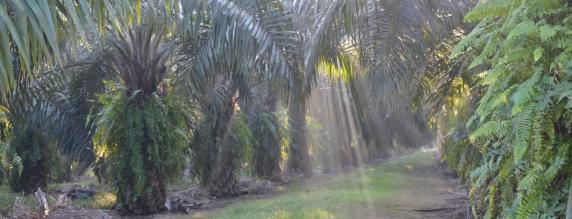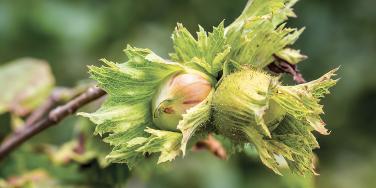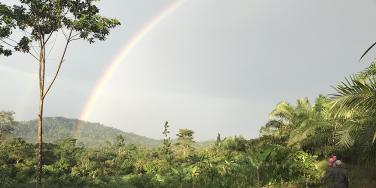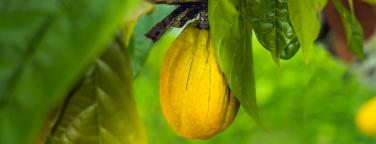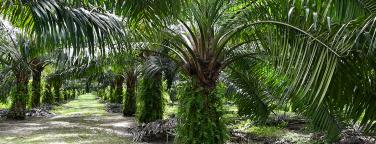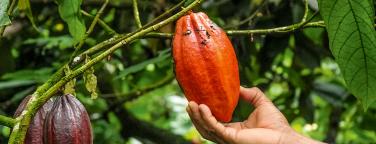FERRERO’S 2020 PALM OIL PROGRESS REPORT
Ferrero’s commitments and actions toward responsible palm oil sourcing go beyond basic requirements and certifications. We are fully committed to securing a zero deforestation and exploitation-free palm oil supply chain through active cooperation with NGOs, key stakeholders and suppliers, and we continue to commit to sourcing sustainable palm oil that is 100% RSPO Certified and Segregated and traceable back to plantations.
In addition to the RSPO certification, we continue to be an active member of POIG (Palm Oil Innovation Group) and HCSA (High Carbon Stock Approach). Both initiatives set the highest standards currently available to achieve responsible palm oil supply chains.
We also invest in establishing direct long-term commercial relationships with our suppliers and engage them through our Palm Oil Charter, by addressing environmental and social issues. In order to monitor potential deforestation, and drive positive change on the ground, we use the Starling satellite monitoring and verification service across all our palm oil sourcing areas.
Supply chain traceability and transparency
A key factor in Ferrero’s approach to sustainable palm oil is maintaining a robust level of mill and palm plantation traceability. This allows us to have clear visibility of the first mile of our palm oil supply chain. With transparency being one of our core pillars, we publish a list of mills every six months from which we source our palm oil.
The latest list, related to the first half of 2020, is available here.
Following recent acquisitions, we have welcomed new products into Ferrero’s extended family and are now working to integrate them into our supply chain. Ferrero’s products, not including acquisitions, continue to source sustainable palm oil that is 100% RSPO Certified and Segregated while our acquired products do not currently have this high level of certification. We’re working to extend our commitment to source only sustainable palm oil that is 100% RSPO Certified and Segregated also to those products and bring them to our overall responsible palm oil sourcing standards. This can take some time and depends on the complexities of post-acquisition integration processes, including available infrastructure and supply chains.
Countries from where Ferrero sourced its palm oil in 2020:
|
Country |
Volume % |
|
Brazil |
0.82% |
|
Colombia |
1.03% |
|
Costa Rica |
0.85% |
|
Guatemala |
4.11% |
|
Honduras |
1.70% |
|
Indonesia |
11.34% |
|
Malaysia |
79.77% |
|
Papua New Guinea |
0.36% |
|
Solomon Islands |
0.01% |
|
Thailand |
0.01% |
1 Including the following Ferrero acquired products: Thorntons, Fannie May and the brands that were part of Nestle’s chocolate business in the United States. The brands that Ferrero acquired from the Kellogg Company in 2019 are not included in this table as we will have full visibility of their supply chain only when the integration process will be completed.
Our strengthened approach: New Palm Oil Charter and Satellite Monitoring
Building on the many years of positive impact of the existing Ferrero Palm Oil Charter, during 2020 we have undertaken a major collaborative effort with our key internal and external stakeholders to review it in order to further strengthen our commitments and actions. The new Charter, currently under completion, will be ready by mid-2021 and will better reflect future challenges and Ferrero’s value proposition.
Following a trial in 2016, from October 2020 Ferrero has started using the Starling satellite monitoring and verification service across our palm oil supply chain (around one million hectares). Operated by Earthworm Foundation and Airbus, Starling uses a combination of satellite imagery and on-the-ground expertise to monitor land cover change and forest cover disturbance in near real time. By providing data that shows where potential deforestation occurs, Starling enables us to identify grievances in our supply chain and drive positive change on the ground. We are confident that this verification tool will strengthen our efforts to secure a sustainable palm oil supply chain.
Actively supporting Transformation
Ferrero is a contributing member of various multidisciplinary expert platforms and roundtables, where the future of the palm oil industry is tailored and discussed, and wee continue to be an active promoter of sustainable palm oil at multiple levels.
We continue to work closely with the European Palm Oil Alliance (EPOA) and are an active member of the RSPO. Ferrero believes that it is crucial to the integrity, credibility and continued progress of the RSPO that every member supports, promotes and works towards the production, procurement and use of sustainable palm oil.
We are also actively involved in POIG’s Retailer and Manufacturer Working Group (RMWG), a collaborative constructive space for responsible brands to inspire each other and to offer support and guidance on how to increase sourcing of traceable and responsible palm oil.
Learn about it here.
Our latest venture into a project that is geared towards biodiversity conservation
To sustainably produce palm oil, there is more needed than concentrating on preventing deforestation or habitat loss. Advanced integrated pest management (IPM), less toxic plant protection products, and improving biodiversity-friendly production practices are crucial to arrive at environmentally, socially, and economically sustainable production systems. For these reasons, in 2020 we have started to work with the Sustainable Agriculture Network (SAN) on a pilot project that aims to advance Integrated Pest Management (IPM) and biodiversity conservation practices at the farm level for palm oil producers.
This project aims to recommend a set of effective IPM practices, suggest low-risk pesticides as alternatives to highly hazardous or high-risk pesticides, and propose a habitat design for beneficial insects that contribute to pest control.
Learn more about our project here.
The numerical data in this Report refers to January-December 2020.





